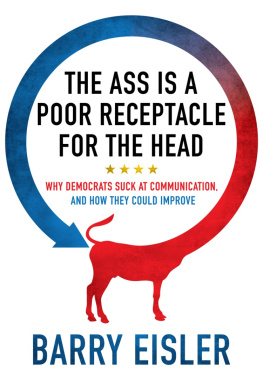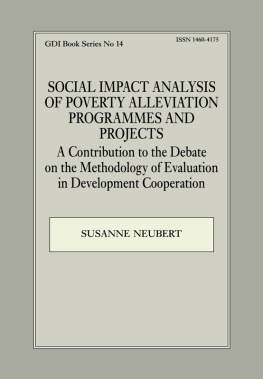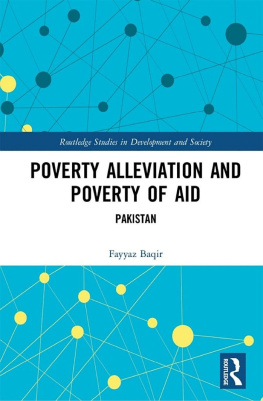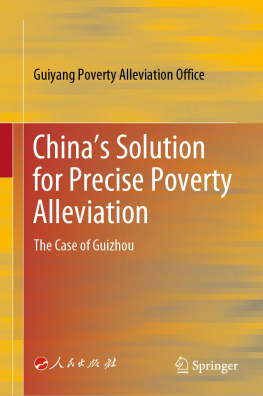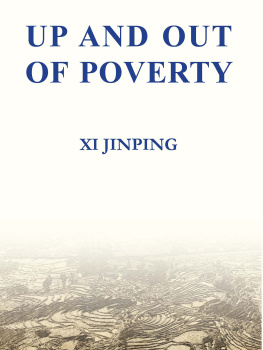
Jack Barry has crafted an extremely important and timely work, one that sheds much-needed light on the multitude of ways ICTs can impact the lives of the poor. Supported by rich, in-depth case studies from Mexico, the books nuanced argument on the intervening role of governance contributes significantly to our understanding of the effectiveness of development policies.
Oksan Bayulgen, Associate Professor of Political Science, University of Connecticut, USA
Jack Barrys keen and thorough assessment of the impact of access to the internet on the poor in the developing world more generally, and in Mexico [in particular], is indeed a novel and fascinating blend of theoretical and empirical approaches to tackling modern-day issues of democratizing information. This timely and thoughtful contribution opens up a window to the study of the policies that aim to provide internet access to the poor, both as an effective human rights approach and an appropriate governance approach.
Mahmood Monshipouri, Professor, San Francisco State University/UC-Berkeley, USA
Jack Barrys argument for internet access as a human right offers a theoretically elegant and nuanced examination of how ICTs impact governance and the subsequent consequences for poverty alleviation. Barrys work reconciles conflicting evidence on the roles of ICTs, making a critical contribution to development, governance, and poverty scholarship.
Kristin Johnson, Associate Professor, University of Rhode Island, USA
Jack Barrys exploration of the benefits and limitations of the internet and mobile phones for promoting human rights will be essential reading in this emerging field of study and practice. Using quantitative data and original interview analysis, Barrys research reorients debates about the impact of ICTs toward the experiences of the users of these technologies. His analysis and policy recommendations significantly advance our understanding of how to use new information and communication technologies to combat poverty and further human rights.
Molly K. Land, Professor of Law and Human Rights, University of Connecticut School of Law, USA
Information Communication Technology and Poverty Alleviation
Despite global economic disparities, recent years have seen rapid technological changes in developing countries, as it is now common to see people across all levels of society with smartphones in their hands and computers in their homes. However, does access to Information Communication Technologies (ICTs) actually improve the day-to-day lives of low-income citizens? This book argues that access to the internet can help alleviate poverty, improve development outcomes, and is now vital for realizing many human rights.
This book posits that good governance is essential to the realization of inclusive pro-poor development goals, and puts forward policy recommendations that aim to mitigate the complex digital divide by employing governance as the primary actor. In making his argument, the author provides a quantitative analysis of developing countries, conjoined with a targeted in-depth study of Mexico. This mixed method approach provides an intriguing case for how improvements in the quality of governance impacts both ICT penetration, and poverty alleviation. Overall, the book challenges the neoliberal deterministic perspective that the open market will solve technology diffusion, and argues instead that good governance is the lynchpin that creates conducive conditions for ICTs to make an impact on poverty alleviation. In fact, the digital divide should not be considered binary, rather it is a multifaceted problem where income, education, and language all need to be considered to address it effectively.
This book will be useful for researchers/students of development, communication technologies, and comparative politics as well as for development practitioners and policy makers with an interest in how modern technology is impacting the poor in the developing world.
Jack J. Barry is a Postdoctoral Research Associate at the University of Connecticut, USA
Routledge Explorations in Development Studies
This Development Studies series features innovative and original research at the regional and global scale. It promotes interdisciplinary scholarly works drawing on a wide spectrum of subject areas, in particular politics, health, economics, rural and urban studies, sociology, environment, anthropology, and conflict studies.
Topics of particular interest are globalization; emerging powers; children and youth; cities; education; media and communication; technology development; and climate change.
In terms of theory and method, rather than basing itself on any orthodoxy, the series draws broadly on the tool kit of the social sciences in general, emphasiz- ing comparison, the analysis of the structure and processes, and the application of qualitative and quantitative methods.
Youth, Gender and the Capabilities Approach to Development
Rethinking Opportunities and Agency from a Human Development Perspective
Edited by Aurora Lopez-Fogues and Firdevs Melis Cin
Democratic Rural Organizations
Thresholds for Evolution in Africa and Asia
Esbern Friis-Hansen, Janki Andharia and Godfrey Suubi
Aid and Technical Cooperation as a Foreign Policy Tool for Emerging Donors
The Case of Brazil
Dborah Barros Leal Farias
Learning and Forgetting in Development NGOs
Insights from Organisational Theory
Tiina Kontinen
Information Communication Technology and Poverty Alleviation
Promoting Good Governance in the Developing World
Jack J. Barry
Information Communication Technology and Poverty Alleviation
Promoting Good Governance in the Developing World
Jack J. Barry
First published 2019
by Routledge
2 Park Square, Milton Park, Abingdon, Oxon OX14 4RN
and by Routledge
711 Third Avenue, New York, NY 10017
Routledge is an imprint of the Taylor & Francis Group, an informa business
2019 Jack J. Barry
The right of Jack J. Barry to be identified as author of this work has been asserted by him in accordance with sections 77 and 78 of the Copyright, Designs and Patents Act 1988.
All rights reserved. No part of this book may be reprinted or reproduced or utilized in any form or by any electronic, mechanical, or other means, now known or hereafter invented, including photocopying and recording, or in any information storage or retrieval system, without permission in writing from the publishers.
Trademark notice: Product or corporate names may be trademarks or registered trademarks, and are used only for identification and explanation without intent to infringe.
British Library Cataloguing-in-Publication Data
A catalogue record for this book is available from the British Library
Library of Congress Cataloging-in-Publication Data
A catalog record has been requested for this book
ISBN: 978-1-138-58706-9 (hbk)
ISBN: 978-0-429-50420-4 (ebk)
Typeset in Times New Roman
by Wearset Ltd, Boldon, Tyne and Wear
This book is dedicated to my wife and life-partner, Patricia Matthews-Barry, who is full of endless joy, love, life, and had the patience to listen to me talk incessantly through the ideas presented here. I have never met a better person and cannot wait to continue on our journey. And to my parents who have instilled in me a lifelong love of learning while avoiding the traditional systems it is so often stifled under.



